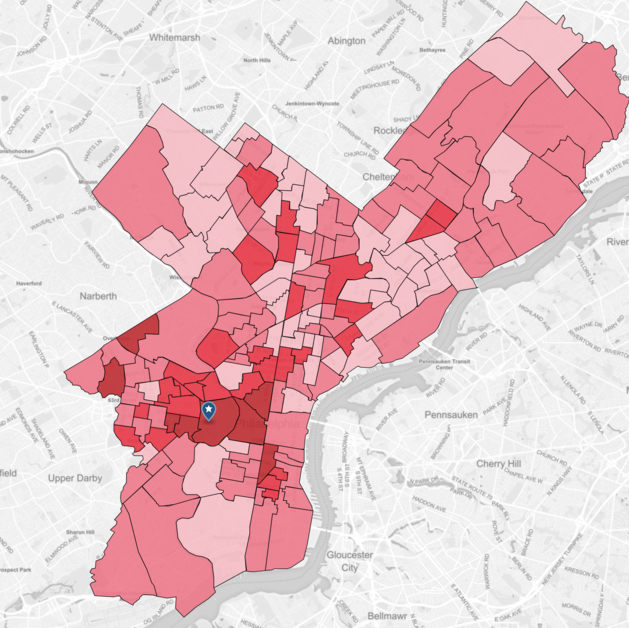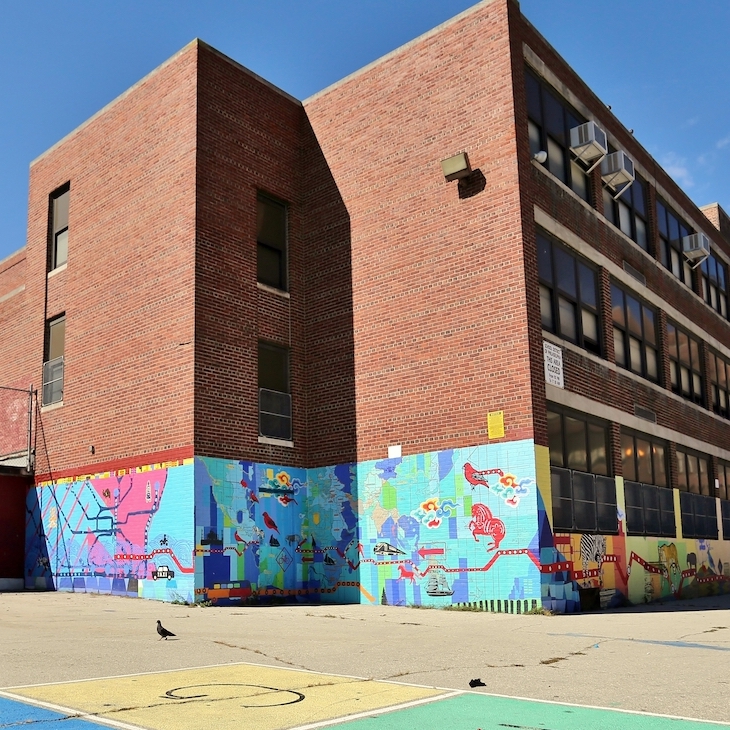Penn GSE in Philadelphia
Our commitment to active, on-the-ground engagement in Philadelphia is a reflection of the University-wide values expressed in the In Principle and Practice strategic framework.
What We Do
The University of Pennsylvania's Graduate School of Education is deeply involved in Philadelphia schools. It is crucial to our mission that Penn GSE faculty and students engage in all levels of education, both formal and informal, in traditional and alternative settings, to better learn how we can solve the challenges of urban education and contribute to the growth and well-being of our citizens. More than a third of our faculty work in or with Philadelphia public schools on issues ranging from improving the quality of writing instruction to teaching coding as part of the elementary school curriculum.
Where We Are

We recognize and acknowledge that the University of Pennsylvania stands on the Indigenous territory known as “Lenapehoking,” the traditional homelands of the Lenape, also called Lenni-Lenape or Delaware Indians. These are the people who, during the 1680s, negotiated with William Penn to facilitate the founding of the colony of Pennsylvania. Their descendants today include the Delaware Tribe and Delaware Nation of Oklahoma; the Nanticoke Lenni-Lenape, Ramapough Lenape, and Powhatan Renape of New Jersey; and the Munsee Delaware of Ontario (credit: Penn Association of Native Alumni). For more information, please visit the Association of Native Alumni and The Original People and Their Land: The Lenape, Pre-History to the 18th Century.
In any given year, Penn GSE is involved in about 400 activities in almost 250 schools across Philadelphia. Additionally, we take part in over 70 community activities in over 65 locations. View a map of our activities in Philadelphia
What types of work are highlighted on the Penn GSE in Philadelphia maps?
- Apprentices and interns work with individual classrooms, educators, and other professionals, receiving training from established mentors in schools and community sites around the city.
- Three whole-school partnerships bring multi-faceted university resources, including teacher coaching and health-related programming, to neighborhood schools.
- Multi-school networks convened by GSE offer professional development and build instructional capacity across schools.
- District-level collaborations seek to impact city-wide educational approaches.
Who does the work highlighted on the Penn GSE in Philadelphia maps?
- Our students bring a wealth of personal and professional experiences to Penn GSE. We have master’s and doctoral students taking part in Penn GSE training partnerships in more than 110 schools and 54 community organizations across the city.
- Our alumni often stay in the city of Philadelphia to continue the work begun at Penn GSE. Our alumni include teachers and leaders in the School District of Philadelphia and city charter networks.
- Our faculty and staff include expert researchers, policymakers, and practitioners addressing the local, national, and international educational issues of our time. Over one third of our full-time faculty and staff are working with local schools, community organizations, and the School District of Philadelphia to contribute to the knowledge, skills, and understanding of effective educational approaches to address the needs of urban schools, students, and communities.
About Philadelphia: Challenges & Successes
The challenges faced by those living and learning in our city are many, and include …
- High rates of child and family poverty: Of major U.S. cities, Philadelphia has the largest proportion of families living in deep poverty in the nation.
- An increasing emphasis on alternative education systems: In 2017-18, less than half of the city’s 202,538 public school students were enrolled in District K-12 schools, with over one third of all Philadelphia public school students enrolled in charter schools, according to the School District of Philadelphia.
- Elusive progress on student achievement: Sixty-seven percent of students graduate high school in four years, according to the District. That is an increase from a few years ago, but according to Federal data, still rates behind other large U.S. cities and well below the state average of 86.1% and national average of 84%.
- In Philadelphia alone, an estimated 245,000 adults lack basic literacy, but there is only one education opening for every 430 low-literate adults who aren’t proficient enough to tackle high school–level work, according to federal and city data.
Within this complex social and political context, the need for quality educational programs that have an enduring impact on learning and achievement, and upon future opportunities, has only become clearer. The investment of Philadelphia’s powerful institutions of higher education is essential to the well-being and success of its youth.

Office of School & Community Engagement
The Office of School and Community Engagement (OSCE) at Penn GSE directly supports the mission of the School and the University in engaging meaningfully and intentionally with the city of Philadelphia—and with documented impact. Our aim is to facilitate and support partnerships with schools and communities in order to improve the educational outcomes and overall well-being of children and youth in Philadelphia.
